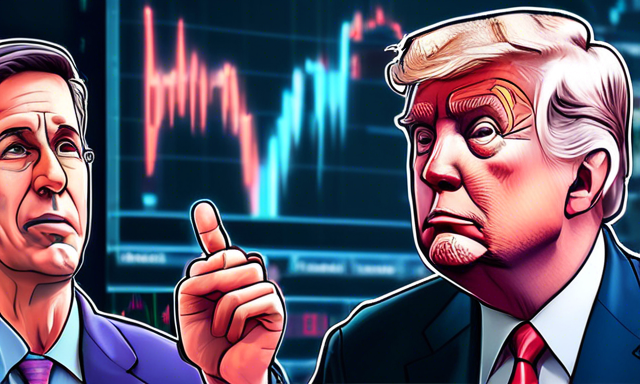Congress Members and Stock Trading: Analyzing Recent Activities 🔍
The trading patterns among members of Congress often attract public scrutiny due to concerns over the misuse of insider information for personal gain. This exploration highlights the recent actions of various lawmakers and the implications of their trades.
Understanding the STOCK Act 📜
Although Congress members are permitted to engage in stock trading, they must comply with the STOCK Act, which stands for Stop Trading on Congressional Knowledge Act. This legislation mandates that lawmakers disclose their stock transactions within 45 days and it prohibits them from using nonpublic information for trading advantages.
Delayed Disclosure of Representative John James’ Trades ⌛
In a recent incident that raises questions about compliance, Representative John James from Michigan revealed his stock trades nearly a year after they occurred. Data shared by the charting platform indicated that he disclosed his transactions on September 2, despite initiating them on November 10, 2023.
Among James’ acquisitions were shares in prominent companies such as Microsoft and Apple, along with a stake in Berkshire Hathaway, which is led by renowned investor Warren Buffett. The transactions varied in value, with most between $1,000 and $15,000, but the investment in Microsoft fell into a higher range, between $15,000 and $50,000.
John James’ Overall Trading Activity 📈
Another analysis from a congressional trading tracker highlighted John James’ trading history, revealing that since his election in 2023, he conducted a total of 146 trades, accumulating a considerable volume of $1.19 million. Healthcare stocks made up a significant portion of his trading activity, with 26 transactions. This focus contrasts with many of his peers, who tend to lean toward defense and technology sectors.
Notable Trading Trends Among Congress Members 💼
In examining overall trading behaviors, certain politicians have distinguished themselves, with former House Speaker Nancy Pelosi being recognized for her trading successes. Though her established track record suggests a level of proficiency, recent data indicates a decline in her trading acumen, especially concerning decisions around key stocks such as Nvidia, in the semiconductor sector.
Additionally, Representative Debbie Wasserman Schultz has made headlines by re-entering the trading fray after a lengthy absence. Her recent purchase of shares in Hecla Mining Company, which operates in the gold and silver mining industry, stands out as an unusual choice among lawmakers and is worthy of attention.
Revisiting the Compliance with the STOCK Act ⚖️
The consistent disregarding of the STOCK Act raises serious concerns, especially when politicians escape accountability for their actions. A notable instance occurred in June 2024 when Representative Mike Kelly and his spouse acquired shares in Cleveland-Cliffs stock after Kelly provided insider information that led to a 300% surge in the stock’s value within a few months.
With these persistent violations, questions linger over whether authorities will take necessary actions against non-compliant legislators. A failure to impose penalties only fuels skepticism around Congress members’ trading decisions and the integrity of the trading processes involved.
Hot Take: The Implications of Congressional Trading Oversight 🔥
The interplay between stock trading and political integrity calls for a closer look. As a crypto enthusiast, you might find it essential to consider the broader implications of such trading behaviors on market stability and transparency. Observing how these congressional activities unfold can offer insights into the potential risks associated with insider trading and its impact on public trust.
You have the opportunity to stay informed about these developments, which could shape the future of market behaviors influenced by legislative actions.





 By
By
 By
By
 By
By
 By
By
 By
By
 By
By